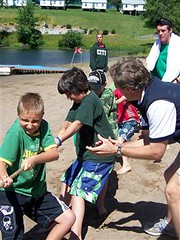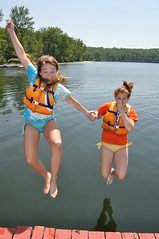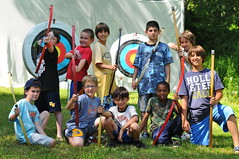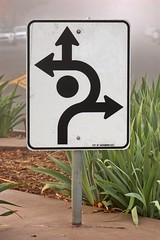We take our 10 month ‘off season’ to plan for 2 months of fun (and safety) and excitement (and growth)! For me, this means meeting every family interested in Weequahic for next summer. (Well, almost every family. I have yet to make it to Spain…).
 Home visits are my favorite part of the ‘off season.’ I get to see the children in their home environment – how they interact with their parents, what games do they like to play, how engaged they are in the process of choosing a camp, etc.
Home visits are my favorite part of the ‘off season.’ I get to see the children in their home environment – how they interact with their parents, what games do they like to play, how engaged they are in the process of choosing a camp, etc.
These visits also help me better understand their families as well. We are big believers in the importance of a whole family approach to Weequahic and do our best to provide both the camper and their family an exceptional summer experience.
Home visits represent an invaluable experience for me, especially when putting the bunks together or speaking with parents during the summer. Therefore, I enter every home with a list of questions I want to explore. I suggest parents approach these meeting in the same manner.
Now, every family is different. Some have no camp experience to draw upon. Sometimes, both parents went to camp for many years. (More often than not at Weequahic, one parent enjoyed camp at least once.) Regardless of your level of camp experience, here are a few questions I think you should ask of any camp director:
- Who are your counselors? How do you find and train them? How old are they and how many live with the kids in the bunk?
- Who supervises the counselors? What is their background?
- What is the program day like? Do our children choose any, some, or all of the daily activities? Will my child participate in activities with boys and girls of any age or is it more structured?
- What sets your camp apart from others?
- Where do your campers come from? How do you place new campers into your community?
- When is visiting day and how does that work?
- How will my child get to camp? What about their luggage? Please explain the first day at camp to me so we know what to expect.
 While this is not an exhaustive list of questions, I believe these are some of the most important. The director, or whoever visits your home, will not be the one providing direct care for your child. However, the director must, in my opinion, have a major influence on the staff selection and training, the bunk life for each child, and much more. The answers to these questions will provide a more thorough understanding of the philosophies behind the camp.
While this is not an exhaustive list of questions, I believe these are some of the most important. The director, or whoever visits your home, will not be the one providing direct care for your child. However, the director must, in my opinion, have a major influence on the staff selection and training, the bunk life for each child, and much more. The answers to these questions will provide a more thorough understanding of the philosophies behind the camp.
The families who approach home visits with a list of questions and specific information they want to receive will have a much better chance in making the right choice for their child. If we can help, don’t hesitate to call! (And, if you can think of some other questions you’d like answered, please post them here!)
Cole Kelly, Camp Director

 1. Communal Living
1. Communal Living
 Starting this summer, Camp Weequahic is moving to an individual choice based program where campers can design and create their own fun summer experience. Prior to camp, campers and parents will complete an on-line program selection form where they will have the opportunity to list 8 to 10 of their favorite activities they want to enjoy throughout the summer. These choices are called “Excel” Periods. Once the Weequahic programming team receives this information, they will build a program especially for you! To round out each program day, each camper will then get to choose 2 ‘Explore” periods a day once they are at camp. The Explore periods are age- and developmentally appropriate activities. These “spontaneous” choices are activities a camper may like to try once or twice…instead of being “focused” on that program for their entire stay at camp. These daily choices can be anything in the Weequahic menu of activities and change daily such as climbing, play practice, guitar, baseball instruction, cooking and so on. Try one or try ’em all during these speical “Explore” periods! There are tons of daily activities to choose from.
Starting this summer, Camp Weequahic is moving to an individual choice based program where campers can design and create their own fun summer experience. Prior to camp, campers and parents will complete an on-line program selection form where they will have the opportunity to list 8 to 10 of their favorite activities they want to enjoy throughout the summer. These choices are called “Excel” Periods. Once the Weequahic programming team receives this information, they will build a program especially for you! To round out each program day, each camper will then get to choose 2 ‘Explore” periods a day once they are at camp. The Explore periods are age- and developmentally appropriate activities. These “spontaneous” choices are activities a camper may like to try once or twice…instead of being “focused” on that program for their entire stay at camp. These daily choices can be anything in the Weequahic menu of activities and change daily such as climbing, play practice, guitar, baseball instruction, cooking and so on. Try one or try ’em all during these speical “Explore” periods! There are tons of daily activities to choose from. This program model also allows camp staff to really focus their teaching because they know what your child wants to achieve, while building in some wonderful flexibility to encourage kids to try things out. Activities that they might have never thought of but heard their bunkmates discussing, for example! Or maybe they just feel like doing something else that day. The model also allows bunks to make group decisions and share new experiences together, such as everyone going to the waterfront for boating, swimming and the water trampoline, which builds community and camaraderie.
This program model also allows camp staff to really focus their teaching because they know what your child wants to achieve, while building in some wonderful flexibility to encourage kids to try things out. Activities that they might have never thought of but heard their bunkmates discussing, for example! Or maybe they just feel like doing something else that day. The model also allows bunks to make group decisions and share new experiences together, such as everyone going to the waterfront for boating, swimming and the water trampoline, which builds community and camaraderie.